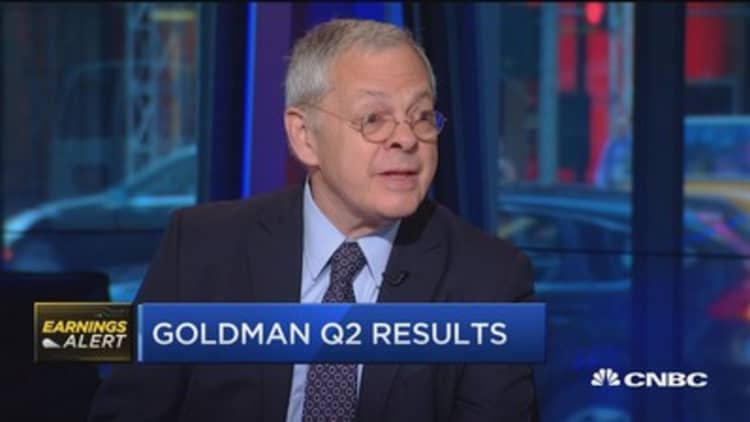
Oil prices are following a familiar — and potentially troubling — trend that took hold last year, but investors shouldn't fear a 2015-style, second-half price collapse, Citigroup's global head of commodities research said Tuesday.
Commodities were the top performing asset class in the first half of 2016, roughly tracing last year's rally through June. And just like last year, crude oil futures are plateauing at the half point.
That pause was followed by a plunge to 12-year lows last winter, but Citi's Ed Morse told CNBC's "Squawk Box" things will be different this year.
"Just the supply-demand balances across commodities is significantly tighter," he said. "We are drawing inventories maybe a bit slower than people had thought, but there's not a lot of new incremental supply to come into the market."
Iraq significantly ramped up production last year — it accounted for 75 percent of total output growth among OPEC countries last year — and Iran has increased its output by about 800,000 barrels per day, Morse noted. Consequently, he said, production cannot grow much at this point.
Meanwhile, production is dropping off in other parts of the world following massive cuts to capital spending. Oil and gas producers have slashed more than $1 trillion in capital spending and exploration investment planned for the period between 2015 and 2020, according to analytics firm Wood Mackenzie.
Much of those cuts have come from the United States, where low oil prices have forced drillers to cut back on high-cost shale production. U.S. output fell to 8.9 million barrels per day in April from a 45-year high of nearly 9.7 million bpd during the same month last year.
"Production is going down. It's falling rapidly in the U.S., China, Colombia, Mexico, Brazil, and that's what brings markets to balance," Morse said.
To be sure, some industry analysts believe that a glut of refined fuel supplies could temporarily drag oil prices lower as refineries take in less crude until gasoline and distillate inventories draw down.
The market, however, could yet be surprised by a return of Libyan oil output following the emergence of a unified government in the long divided nation, he said. A resumption of production from the Partitioned Neutral Zone jointly operated by Saudi Arabia and Kuwait could also provide a bearish surprise, he said.
Resumption of the 500,000 bpd of capacity at two oilfields there could take a year, Platts reported in May, quoting the head of research at Kuwait Petroleum Company. Industry insiders told Reuters production was halted over operating rights disagreements.
Morse acknowledged that U.S. dollar strength has dragged strongly on commodities following Britain's vote to leave the European Union. But he said the inflection point would probably be temporary.
Crude oil and many other commodities are denominated in the dollar, so a stronger greenback discourages buyers from stocking up.


